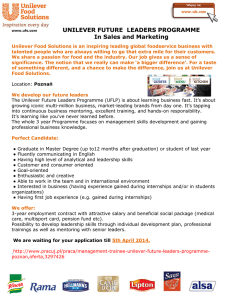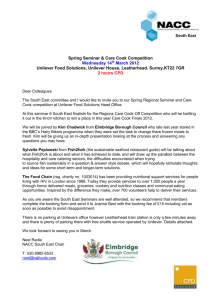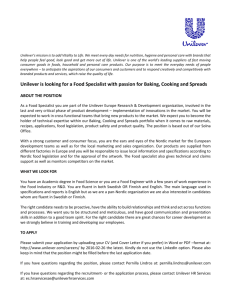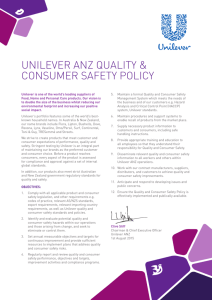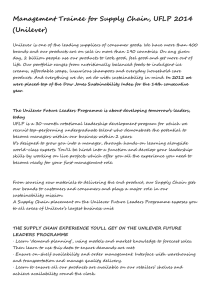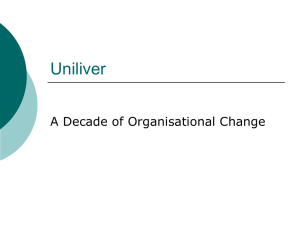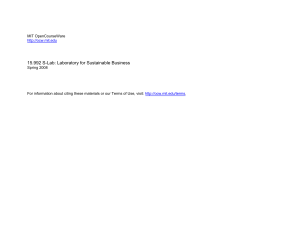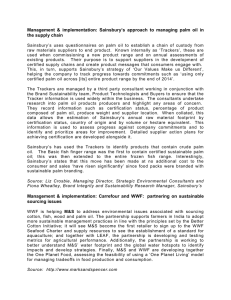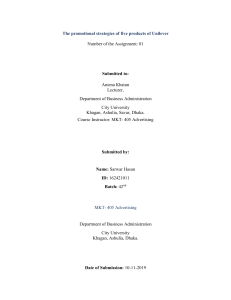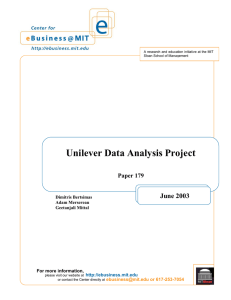Results The new brand tax On our minds
advertisement
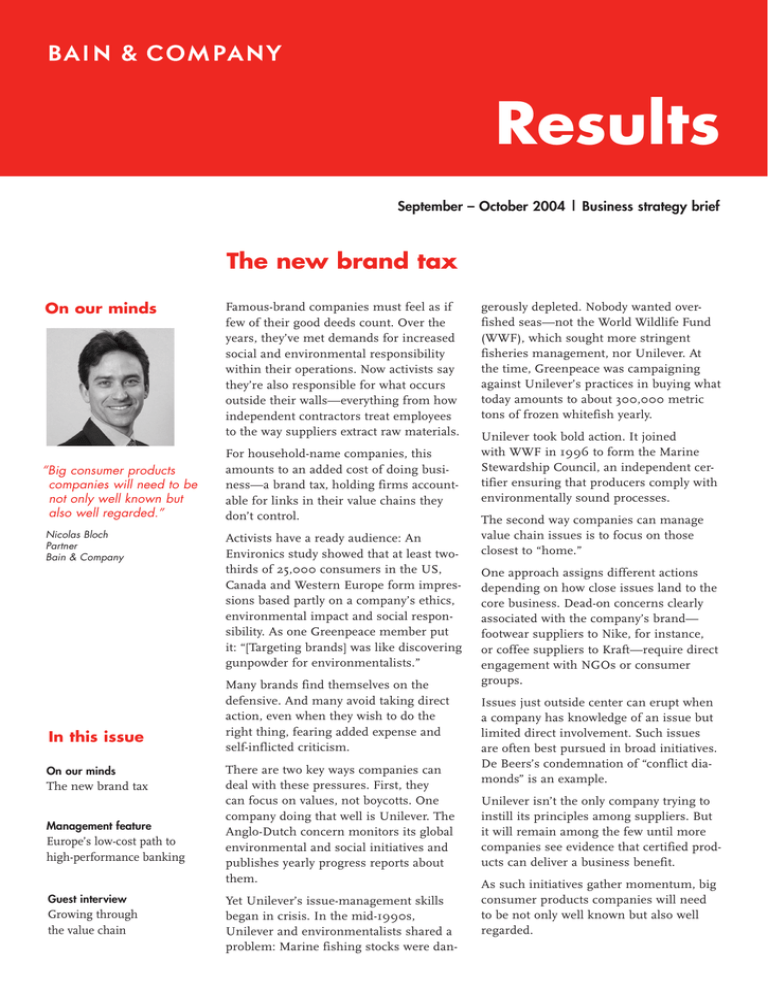
Results September – October 2004 | Business strategy brief The new brand tax On our minds “Big consumer products companies will need to be not only well known but also well regarded.” Nicolas Bloch Partner Bain & Company In this issue On our minds The new brand tax Management feature Europe’s low-cost path to high-performance banking Guest interview Growing through the value chain Famous-brand companies must feel as if few of their good deeds count. Over the years, they’ve met demands for increased social and environmental responsibility within their operations. Now activists say they’re also responsible for what occurs outside their walls—everything from how independent contractors treat employees to the way suppliers extract raw materials. For household-name companies, this amounts to an added cost of doing business—a brand tax, holding firms accountable for links in their value chains they don’t control. Activists have a ready audience: An Environics study showed that at least twothirds of 25,000 consumers in the US, Canada and Western Europe form impressions based partly on a company’s ethics, environmental impact and social responsibility. As one Greenpeace member put it: “[Targeting brands] was like discovering gunpowder for environmentalists.” Many brands find themselves on the defensive. And many avoid taking direct action, even when they wish to do the right thing, fearing added expense and self-inflicted criticism. There are two key ways companies can deal with these pressures. First, they can focus on values, not boycotts. One company doing that well is Unilever. The Anglo-Dutch concern monitors its global environmental and social initiatives and publishes yearly progress reports about them. Yet Unilever’s issue-management skills began in crisis. In the mid-1990s, Unilever and environmentalists shared a problem: Marine fishing stocks were dan- gerously depleted. Nobody wanted overfished seas—not the World Wildlife Fund (WWF), which sought more stringent fisheries management, nor Unilever. At the time, Greenpeace was campaigning against Unilever’s practices in buying what today amounts to about 300,000 metric tons of frozen whitefish yearly. Unilever took bold action. It joined with WWF in 1996 to form the Marine Stewardship Council, an independent certifier ensuring that producers comply with environmentally sound processes. The second way companies can manage value chain issues is to focus on those closest to “home.” One approach assigns different actions depending on how close issues land to the core business. Dead-on concerns clearly associated with the company’s brand— footwear suppliers to Nike, for instance, or coffee suppliers to Kraft—require direct engagement with NGOs or consumer groups. Issues just outside center can erupt when a company has knowledge of an issue but limited direct involvement. Such issues are often best pursued in broad initiatives. De Beers’s condemnation of “conflict diamonds” is an example. Unilever isn’t the only company trying to instill its principles among suppliers. But it will remain among the few until more companies see evidence that certified products can deliver a business benefit. As such initiatives gather momentum, big consumer products companies will need to be not only well known but also well regarded.
